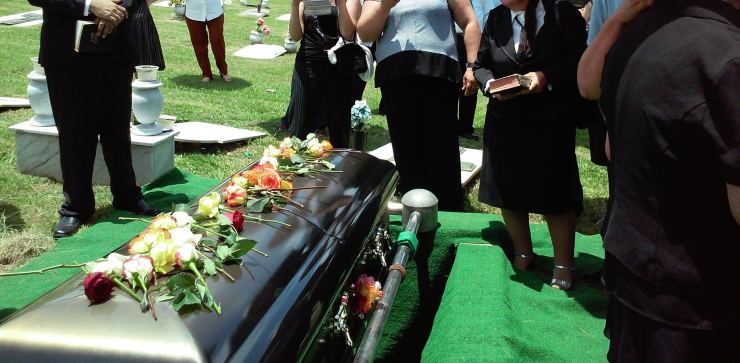
UK: A new report by Theos think tank has revealed changing attitudes towards death and dying.
The study, 'Love, Grief and Hope', contains data compiled from YouGov on behalf of the think tank which finds that only 47% of Brits want any kind of funeral, with financial pressures a strong consideration.
The report said, "This is not a neutral trend, but may have significant implications for how effectively grief is managed across society ... In a society which generally tries to push death away, the funeral is one of the few places where it is explicitly acknowledged."
In his foreward to the report, the Archbishop of Canterbury, Justin Welby, said it was "shocking to discover that death may be seen as expensive, time-consuming and irrelevant, and that it is better just to move on".
"A sea-change in our culture means that as people around us are increasingly sheltered from the physical reality of death, they know less and less about how they will die and how to cope with loss," he said, as he warned people against avoiding the topic.
"We seem to have short memories. It was only recently that Covid meant that we often could not mourn our loved ones in person even if we wanted to. If we avoid what death means, we can also lose a meaningful vocabulary for death and dying.
"As a hospital chaplain during the pandemic, I sat with people as they died when their families couldn't. I found that presence of someone willing to face death was a comfort not just to the person, but to those who cared for them.
"It assured people that we are not alone, even in death. In fact, it is often when death approaches that we might feel love and connection most strongly."
The study also found that many Brits have had no direct experience of death - only 15% of 18 to 24 year olds had been present at the moment of someone's dying.
Even among people aged 55 and over, who were more likely to have lost a loved one, only 54% had been with someone as they died. This rose to 80% among widowed respondents - a finding that Theos said raised important questions about people's ability to cope.
The survey delved into respondents' feelings about their own death, with half saying they felt sadness. This was followed by 46% who felt acceptance, over a third (38%) who felt fear and a similar number who reported feeling anxiety (35%).
People who attended a worship service were less likely to feel fear (27% of frequent attenders) and sadness (37% among regular attenders) than those who only attended infrequently or not at all.
Around one in five self-identified Christians (19%) felt hope when contemplating their own death, compared to 9% of their non-religious counterparts.
"Religious attendance was a better indicator of emotional response than religious affiliation on its own, which made little difference in most cases," the report said.
Asked what elements they would like at their own funeral, respondents were more likely to choose a talk given by a secular celebrant (16%) than a religious leader (11%). Just over a quarter wanted a period of silence or reflection (27%) and only one in five wanted prayers (19%). The most popular items on the wishlist were stories or tributes (52%) and popular songs (46%).
"Christian options are not being outcompeted by an alternative belief framework, so much as the desire to personalise," said Theos.
Only 4% said they would reach out to the faith community for support after bereavement. Most selected family (72%) or friends (59%).
"[The] fact remains that religious affiliation (and especially Christian affiliation) is declining, with significant implications for the way we think about our own death and grieve the loss of our loved ones," Theos said.
"Perhaps more than any other factor, this is driving the realignment of approaches to death and dying in the UK."
Despite declining religious and especially Christian affiliation, the report concludes that churches still have an important, if evolving, role to play.
It concluded, "[As] increasing numbers of people forego formal funeral ceremonies, access to informal reflective spaces will become an increasingly important service to the nation in its own right.
"Here, churches and other faith groups are uniquely well-placed to respond to the emerging pastoral need because of their historic witness in this area, alongside their continued assets in the community.
"This is a distinctly modern opportunity to meet people in their grief."
Republished from Christian Today UK.




